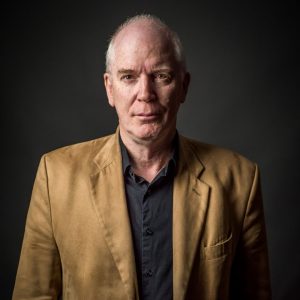In my last post I analyzed John Webster as the theologian of holiness, where I considered Webster’s commitment to faithfully articulating the distinction between Creator and creation as it relates to God’s nature as God. Webster’s life could be summed up as a life-long commitment to this concept, what he himself described as “theological theology,” attempting return theology to its place as Queen of the Sciences and consider all things as a sub-species of the divine. For Webster, this led to critical reflection on his life and practices: no stranger to personal revision, Webster is seen frequently advocating the concept of the Christian faith as necessarily “critical,” meaning, it is taken toward self-reflection and introspection under the gaze of divine revelation. According to Webster, humility is the greatest sign of this, and must uniquely accompany not only the theological endeavor, but the Christian life en toto, where “Christian faith and task are always accompanied by self-criticism.”[1] This is because revelation both “authorizes” the theological task and actions of the church, its ability “to live, speak, and act,” as well as “disturbs” it: “Revelation cleaves us apart…”[2] For Webster, it is this confrontation by the Word, in its full authority, that drives the Christian practice to conform not to self, but to the Most Holy God. As such, Webster’s doctrine of habits and spiritual disciplines conforms to this conception of God’s Otherness, and it was his conviction that habits, prayer, and even the simple reading of Scripture were all done before the Word and within the sphere of the Triune God’s grace in union with Christ.
Webster’s focus on the shaping of theological habits and virtues comes to the forefront in his short and accessible volume, The Culture of Theology, the result of his mid-career professorship at Oxford as originally presented during the Thomas Burns Memorial Lectures at the University of Otago, and I think the title here is instructive: both proper affections and the virtues related to them must be cultivated through practice—in other words, they must be habituated.[3] This is the moral and spiritual formation of the Christian within the realm of piety, a connection that Webster also makes, and his concern is drawing the connection between good theological practice and good theology: “Good theology demands good theologians.”[4] According to Webster, “Christian theological existence is nothing other than a form of Christian existence, standing under exactly the same total claim of the gospel. Part of what is required as a response to that claim is readiness for the kinds of personal growth and change which inevitably afflict us in engagement with God.” He continues, “…it involves abandoning my mystery of myself and receiving myself anew from God. Good theologians are those whose life and thought are caught up in the process of being slain and made alive by the gospel and of acquiring and exercising habits of mind and heart which take very seriously the gospel’s provocation.”[5] For Webster, then, it is that provocative aspect of the gospel that intrudes on our prideful sense of self, causes us to change, and conform, not to ourselves, but to Christ. This is, partly, the role of theological institutions, but more importantly, all who are enrolled in the greater school of Christ: “Habits form virtues, and virtues are the content of character. To be a theological learner is to be one engaged in the business of inculcating the habits, learning the virtues, and so coming to have one’s life engraved (usually painfully) with a certain ‘character.’”[6]
This account of habit and the well-cultivated character Webster find articulated with what he calls “stunning clarity” in the writings of John Calvin: “non nostril sumus, sed Domini [We are not our own, but the Lord’s],” leading him to consider the underlying spiritual reality of 2 Corinthians 5:17, “If anyone is in Christ, he is a new creation: the old has passed away, behold, the new has come.”[7] Webster writes, “The human lives of Christian believers are a ‘converted’ reality. That is to say, their existence as the redeemed people of God in a redeemed creation is neither identical with nor a straightforward extension of unredeemed existence: it is something other. At its basis lie disruption, discontinuity, the abandonment of one mode of existence and the taking up of another”; “The change, in other words, is absolute…”[8] These require what he calls “Christological-eschatological affirmations”: we are resurrected in Christ, and our identity is reordered accordingly. “We need, that is, an ontology and anthropology of redemption, in which creation is seen as history, with its teleology governed not so much by its past ordering as by its future consummation, secured in the redeeming work of Christ.”[9] Webster calls this existence “eccentric,” “having its center not in itself but in another.” This eccentric existence finds its habits within the sphere of God’s active grace, and it is here that Webster has a stunning thought concerning the nature of human spirituality:
At the heart of theological existence is calling upon God. Prayer is not to be thought of functionally or instrumentally. It is not a means to an end; it is not some kind of contemplative clearing of the mind or spirit, a positioning of oneself more accurately before the intellectual task. Even less is prayer part of a benign ambience of religiosity which bathes our scholarly efforts with its light (a daft idea if ever I heard one). Prayer is speech addressed to God in which we ask for help with an urgency and intensity which only make sense if we really are in dire straits. Prayer is that basic human action which corresponds to our incapacity, to our unsuitability for what is required of us, and therefore to the utter necessity of the merciful intervention of God. To pray is to be human in the theater of grace.[10]
He goes further: “Formation, cultivating the soul, is a waiting on God, a waiting which is itself enabled and which looks to God in humble expectancy.”[11] This is what it means to live a prayerful life, one that shapes and defines our habits through prayerful communion in the presence of God, coram Deo. It is a living in the fear of the Lord, “the result of finding oneself set in the light of God’s truth … realizing that what we do when we do speak and think about the God of the Gospel is a matter for wonder rather than curiosity.”[12]
It is here, in what Webster has endearingly referred to as “the theater of grace,” that a simple reading of Scripture comes to the forefront. It is instructive that, in his Kantzer lectures, Webster responds to the questioning of a student concerning his hermeneutical philosophy by stating that he prefers the concept of a plain, albeit theological reading of the text.[13] In Culture of Theology, he describes this as “attentive, ascetic reading,” i.e. reading to hear God’s plain voice in Scripture: “Theology is thus most properly an invitation to read and reread Scripture, to hear and be caught up by Scripture’s challenge to a repentant, nonmanipulative heeding of God’s Word.”[14] This happens, for Webster, within the theater of grace and the scope of prayer:
Christian reading is thus, very simply, a prayerful activity. Prayerfulness is not a spiritual embellishment, or even a preliminary recoil or gathering of resources before proceeding to read in an entirely natural manner. Prayer constitutes and accompanies Christian reading, setting willed acts of interpretation in an entirely new context, relativizing them and transforming them, beseeching God to effect the transparency and conformity of reading-acts to acts which God in Christ performs through the Holy Spirit.[15]
And it does this, as Webster notes elsewhere, because it is clear: “The Bible is perspicuous as a function of the radiance of God the Word: here God’s light is effective in manifesting the gospel and stands in no need of an interpretive elite (clerical or academic) before it can illuminate the people of God.”[16] Reading is simply “listening to divine address”: “Attention, astonishment and repentance, together with delight and freedom in which they issue, characterize the reader of Holy Scripture when he or she reads well, that is, with courtesy and humility.”[17]
What can we learn from Webster on holy habits? Webster is usually viewed as a dogmatic theologian par excellence; his contribution to our consideration of God’s holiness is an exemplary demonstration of well-ordered theological thought. Nonetheless, theological thought without theological practice is what Webster calls mere “curiosity,” a type of pride that is not performed before and in the sphere of the Spirit’s sanctifying grace.[18] As Christians, we should seek the cultivation of our character in conformity with Christ, desiring to emulate the God of holiness who we love. Habits, prayer, and reading must be shaped and conformed by the intrusive power of God’s holiness, applied critically to the self. For Webster, holiness is thus not something that we merely learn about, study, or contemplate: it is something that we cherish, do, and emulate.
[1] John Webster, The Culture of Theology (Grand Rapids: Baker, 2019), 116.
[2] Culture of Theology, 126.
[3] For a technical definition, see that of Richard Muller, who defines a habitus as a “disposition , habit ; understood either as intrinsic to a subject and a subset of the category of quality (qualitas , q.v.) or as extrinsically originated and— together with action, passion, place, posture, and time— one of the final series of categories, or praedicamenta (q.v.). Understood as an intrinsic quality, a habit is a quality that disposes a being in a particular way, either in relation to its being, as an entitative habit or disposition, such as health; or in relation to actions, as an operative habit, such as virtue or vice. Understood extrinsically, a habit or disposition is an added or incidental characteristic such as results from wearing clothing, bearing arms, and so forth” (s.v. “Habitus,” Dictionary of Latin and Greek Theological Terms).
[4] John Webster, Culture of Theology, 131, 133.
[5] Culture of Theology, 133
[6] Culture of Theology, 136.
[7] Culture of Theology, 138-9.
[8] Culture of Theology, 139.
[9] Culture of Theology, 142.
[10] Culture of Theology, 143-4.
[11] Culture of Theology, 145.
[12] Culture of Theology, 146.
[13] John Webster, Kantzer Lectures in Revealed Theology. Perfection & Presence: God With Us, according to the Christian Confession (2007).
[14] Culture of Theology, 76, 77.
[15] John Webster, Word and Church: Essays in Christian Dogmatics II (New York: Bloomsbury T&T Clark, 2016), 83.
[16] Word and Church, 76.
[17] Word and Church, 80.
[18] See “Curiosity,” The Domain of the Word (New York: Bloomsbury T&T Clark, 2013).

John Webster and the Holiness of Preaching
For Webster, preaching and pastoral work is one of a profound vocation; a calling to emulate the God who preaches.

Theologian of Holiness: Introducing John Webster
Webster’s life-long project of ‘theological theology’ could be said to be an expansion of a theological category many evangelicals would consider theologically-basic: holiness.

The Lord’s Dinner
The first-century churches, when they met, ordinarily ate a proper meal together, a meal including the bread and the cup, and this meal was at the heart of their common life and worship.



